Özyeğin University, Çekmeköy Campus Nişantepe District, Orman Street, 34794 Çekmeköy - İSTANBUL
Phone : +90 (216) 564 90 00
Fax : +90 (216) 564 99 99
E-mail: info@ozyegin.edu.tr

"Talks on a World in Crisis" Online Talk Series
"Talks on a World in Crisis" Online Talk Series
"Talks on a World in Crisis" Online Talk Series
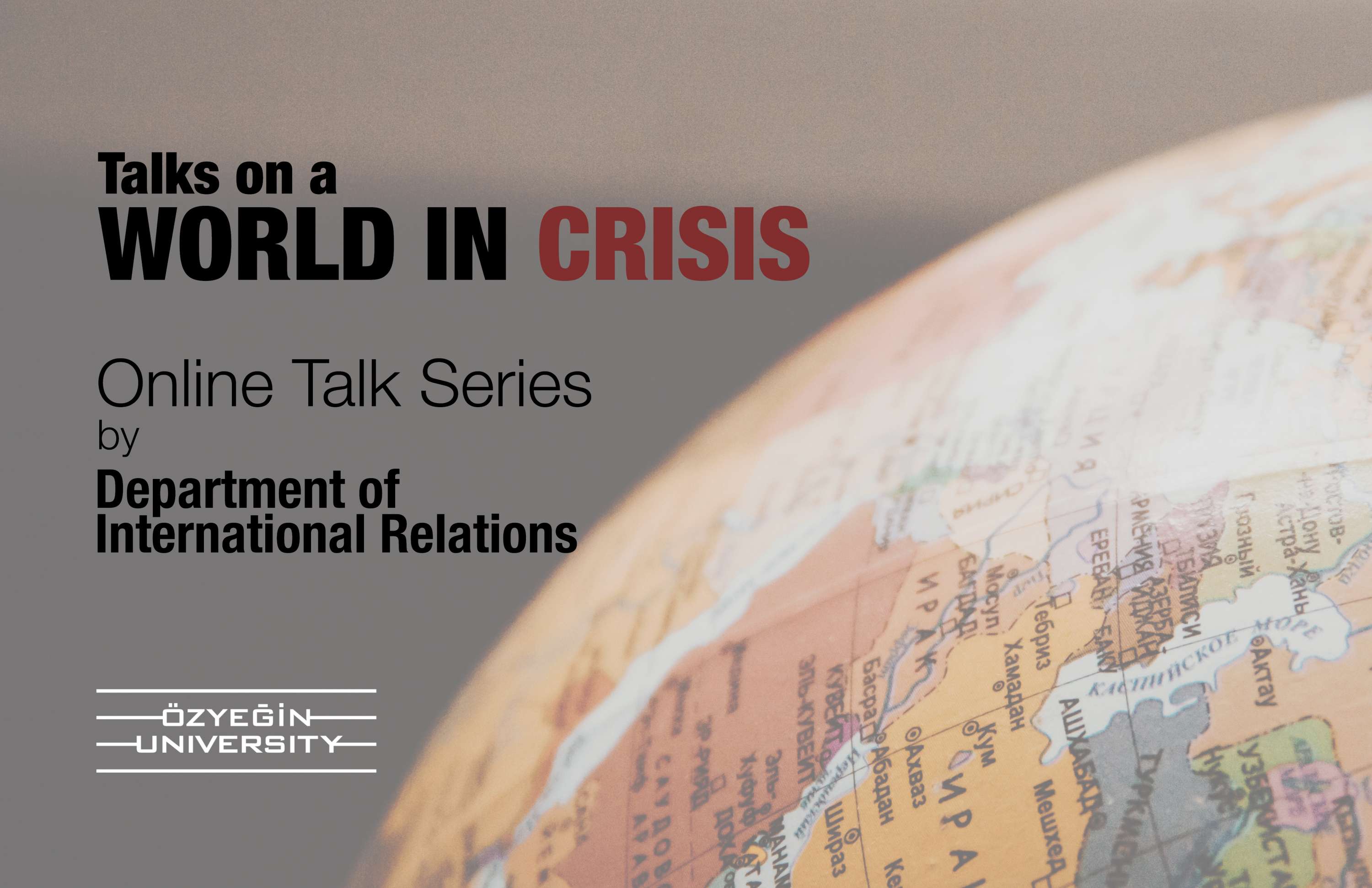
The "Talks on a World in Crisis" online talk series brings together leading scholars and practitioners in their fields from across the world to share their research and experience on different facets of the challenges faced in global politics and political economy.
Events organized within "Talks on a World in Crisis" online talk series can be viewed below.
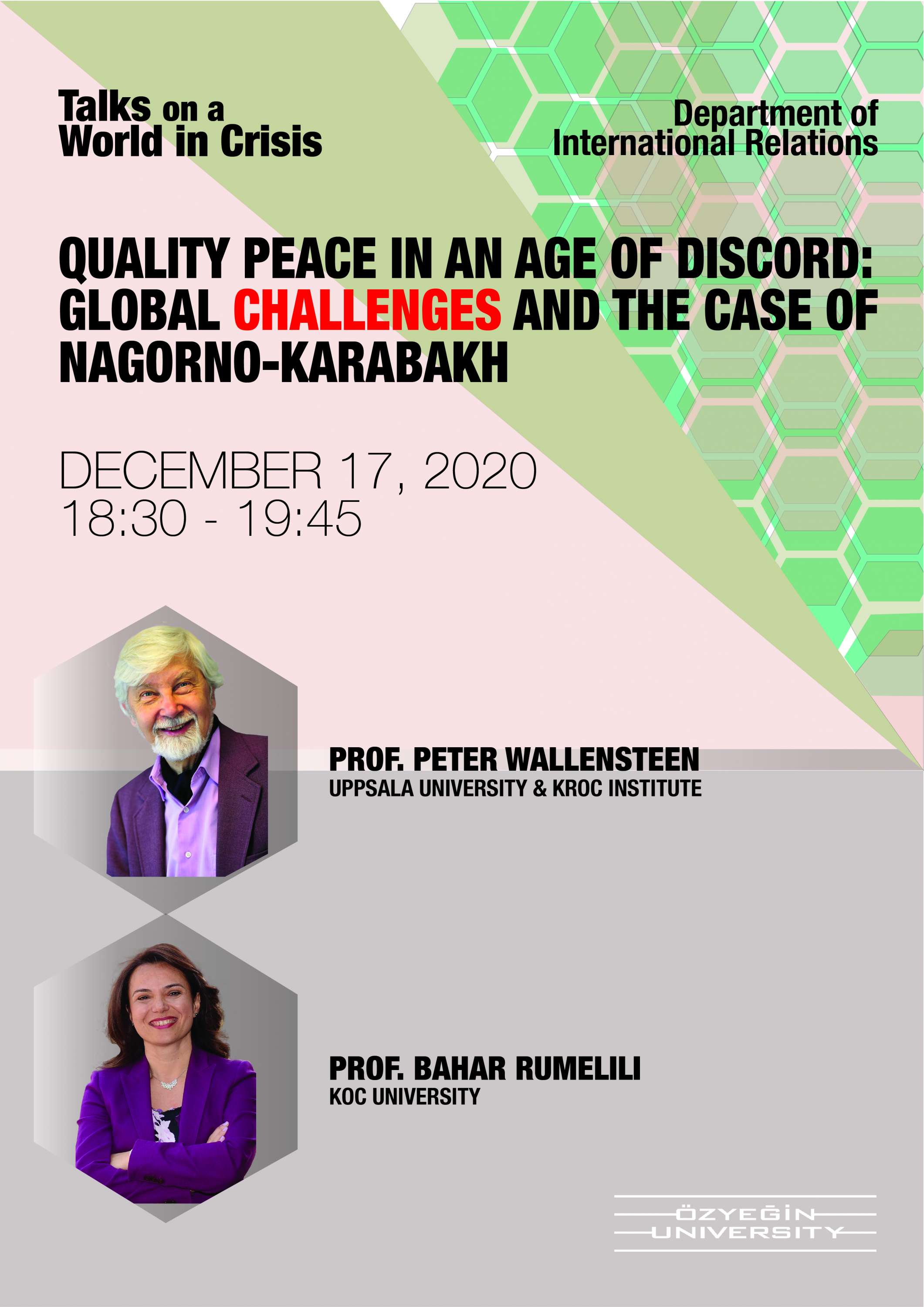
Quality Peace in an Age of Discord: Global Challenges and the Case of Nagorno-Karabakh
December 17, 2020 // 18:30 - 19:45
Prof. Peter Wallensteen, Uppsala Üniversitesi & Kroc Enstitüsü
Prof. Bahar Rumelili, Koç Üniversitesi
Abstract
The year of the pandemic has not reduced the challenge of war. What seemed to be “frozen” conflicts have warmed up. New conflicts have emerged and older ones have remained unsolved. The international efforts of mediation and negotiations have been stalled, with devastating effects for the populations. Thus, there is a need to look for new possibilities for the 2020s: can these challenges to peace be rephrased to become more interesting and more successful? There are (at least) two such possible avenues. One is provided by the SDG 16, and another by the notion of quality peace. This presentation looks at these approaches and attempts to apply them to one case that long have withstood any attempts at resolution: the conflict over the Nagorno Karabakh region.
For the Youtube record of the event, please click here.
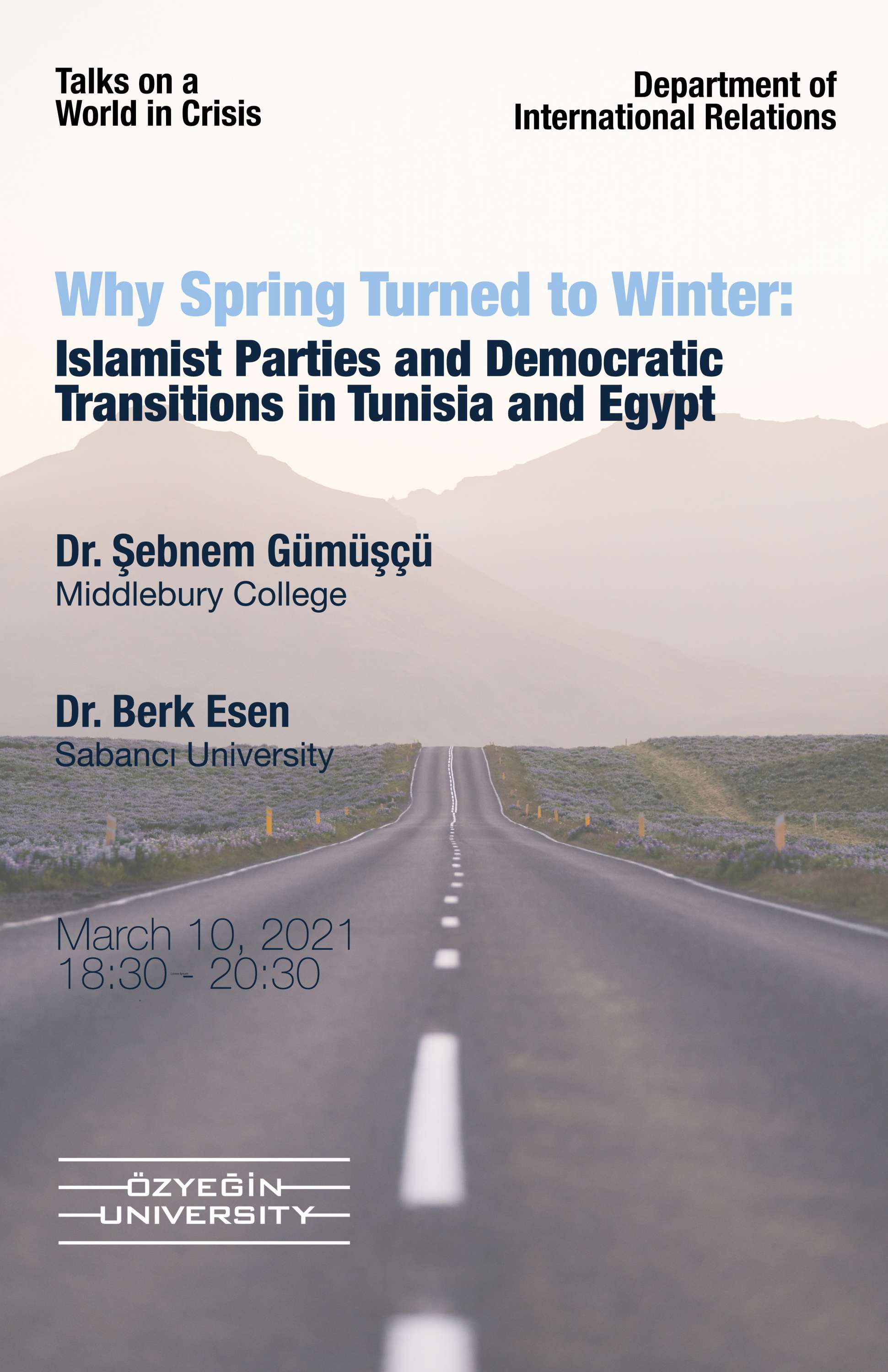
Why Spring Turned to Winter: Islamist Parties and Democratic Transitions in Tunisia and Egypt
March 10, 2021 // 18:30 - 20:30
Dr. Şebnem Gümüşçü, Middlebury College
Dr. Berk Esen, Sabancı Üniversitesi
Abstract
2021 marks the 10th year anniversary of the Arab uprisings. Starting in Tunisia and rapidly sweeping across North Africa and Middle East, millions demanded the end of long-lasting autocratic rule in their countries. Holding their regimes accountable, they wanted jobs, dignity, and freedom. Yet their historic call largely failed to instate meaningful change. Only in Tunisia, where the uprisings began, we witnessed the birth of democratic rule. Elsewhere, autocrats stopped the revolutions in their tracks. Today, the region is poorer, the youth is still unemployed, and autocrats are ruling with a tighter grip. What went wrong? How come did the uprisings fail to deliver change? This talk tackles this question. In a search of an answer, it focuses on the role of Islamist parties and how they shaped the transitions.
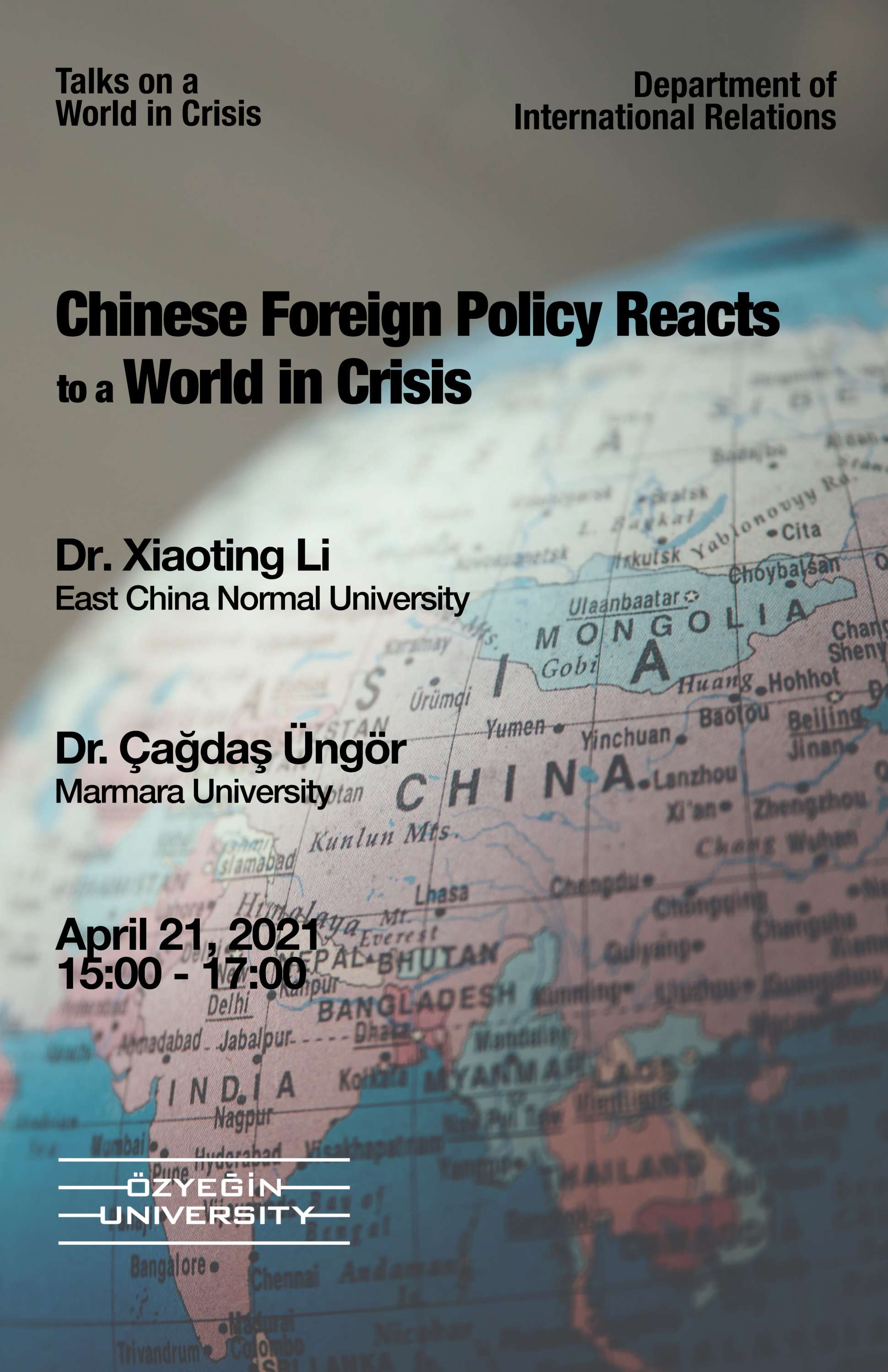 Chinese Foreign Policy Reacts to a World in Crisis
Chinese Foreign Policy Reacts to a World in Crisis
April 21, 2021 // 18:30 - 20:30
Assoc. Prof. Xiaoting Li, East China Normal Üniversitesi
Prof. Çağdaş Üngör, Marmara Üniversitesi
Abstract
In IR theory, much is said of the hegemon's duty to maintain a well-functioning international system by providing public goods, strengthening international institutions, and preserving international stability. Conversely, if the hegemon neglects these duties and puts narrow self-interest first, the international system will be in crisis and open up a space for the hegemon's peer competitors. Over the last four years, the failure of the U.S. to act as a responsible hegemon has not only vitiated the legitimacy of the West-dominated international order but enabled China to play a larger and more constructive role in global and regional affairs. To consolidate its ascendancy on the international stage, however, China will have to take a long view and act more responsibly than the U.S. in managing conflicts of interest with other states.
For the Youtube record of the event, please click here.
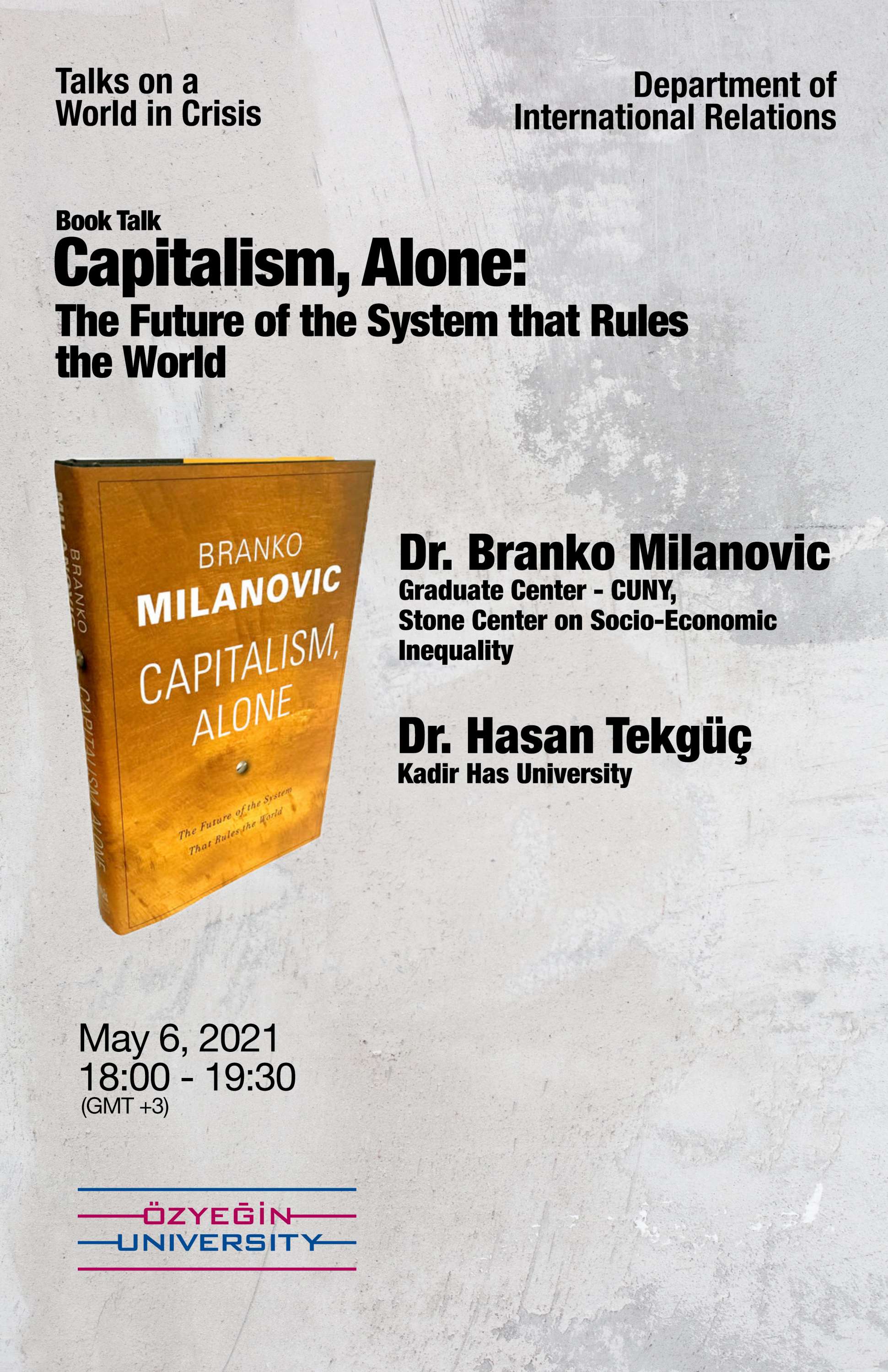
Capitalism, Alone: The Future of the System that Rules the World
May 6, 2021 // 18:00 - 19:30
Prof. Branko Milanovic, Graduate Center - CUNY & Stone Center on Socio-Economic Inequality
Assoc. Prof. Hasan Tekgüç, Kadir Has Üniversitesi
Abstract
The talk based on Milanovic's recent book "Capitalism, Alone", will discuss and analyze systemic inequalities in liberal capitalist societies with the special emphasis on the phenomenon of homoploutia, that is, of high incomes from both labor and capital received by the same persons. Homoploutia is one of the key defining characteristics of modern capitalism, distinguishing it from its classical version. It is a desirable development because it reduces class-based distinctions, but it also encourages the formation of an elite that is more stable (thanks to its diversification of assets, including skills) and able to transfer these advantages across generations.
For the Youtube record of the event, please click here.
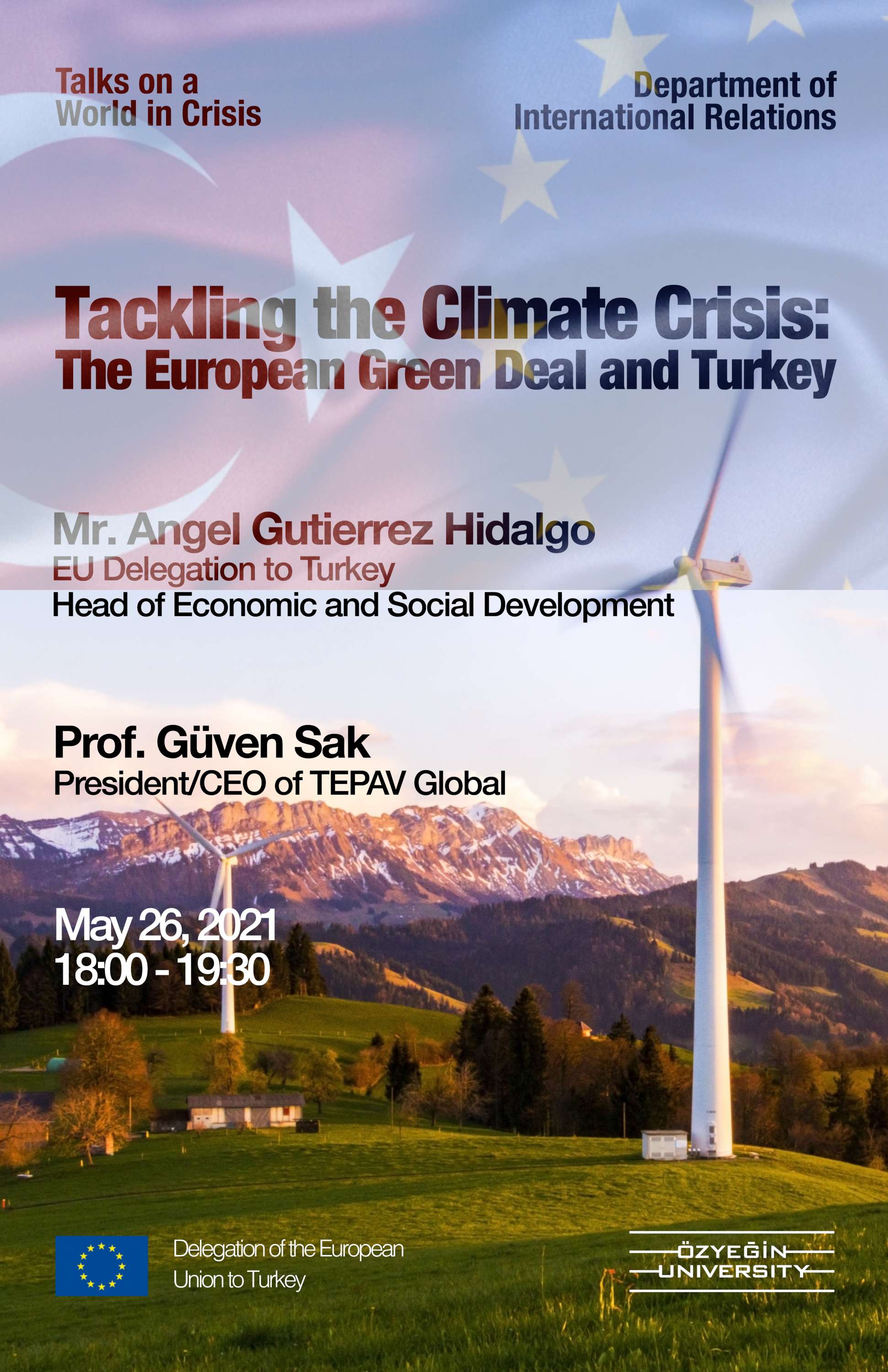
Tackling the Climate Crisis: The European Green Deal and Turkey
May 26, 2021 // 18:00 - 19:30
Mr. Angel Gutierrez Hidalgo, EU Delegation to Turkey Head of Economic and Social Development
Prof. Güven Sak, President/CEO of TEPAV Global
Abstract
The atmosphere is warming and the climate is changing with each passing year. One million of the eight million species on the planet are at risk of being lost. Forests and oceans are being polluted and destroyed. The European Green Deal is a response to these challenges, while at the same time it also offers opportunities to create innovation, value-added, and jobs. It is a new growth strategy that aims to transform the EU into a fair and prosperous society, with a modern, resource-efficient, and competitive economy where there are no net emissions of greenhouse gases in 2050 and where economic growth is decoupled from resource use.
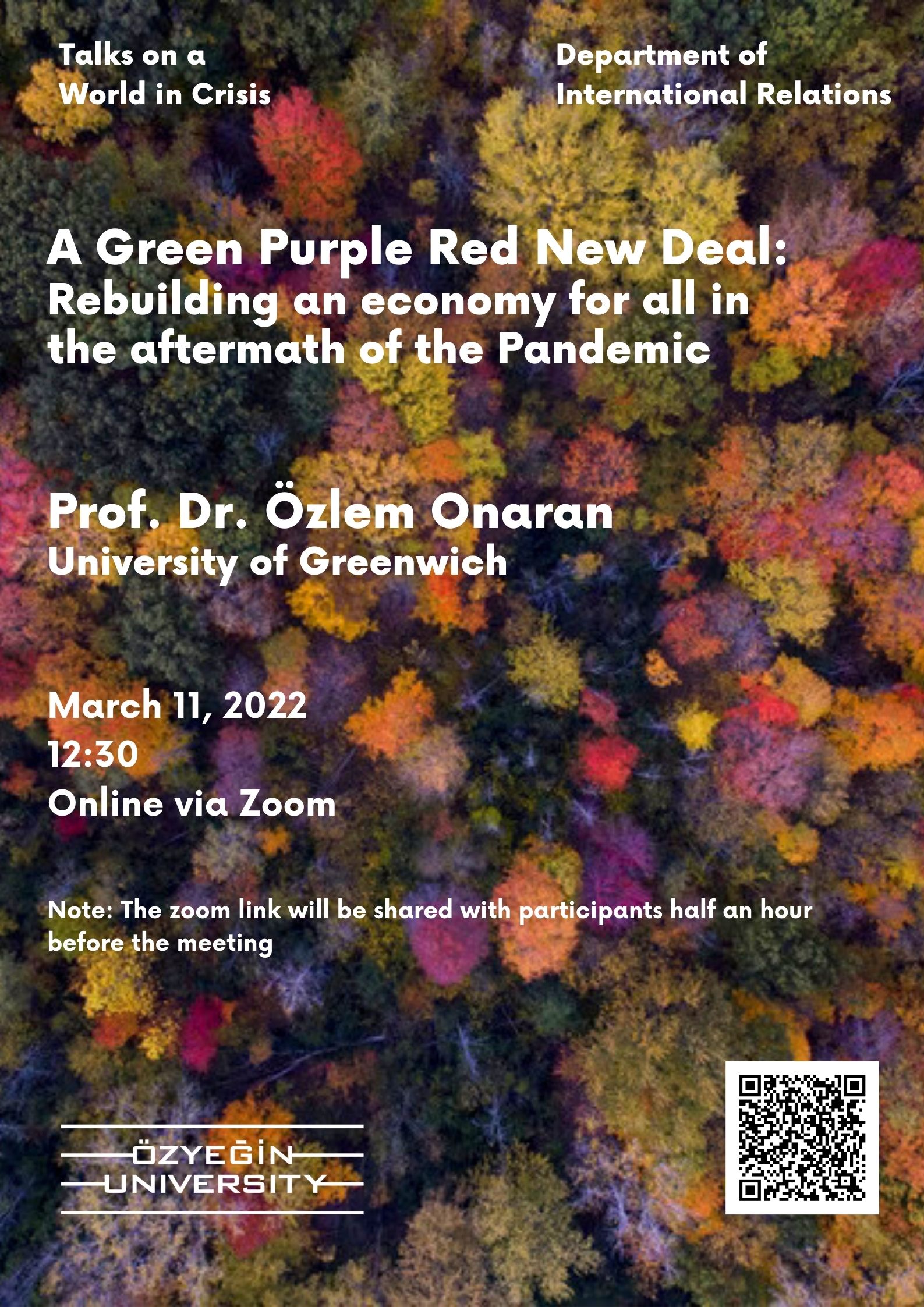 A Green Purple Red New Deal: Rebuilding an economy for all in the aftermath of the Pandemic
A Green Purple Red New Deal: Rebuilding an economy for all in the aftermath of the Pandemic
March 11, 2022 // 12:30
Prof. Özlem Onaran, University of Greenwich
Abstract
In this talk, Prof. Onaran will discuss the building blocks of a paradigm shift for a needs-based approach to macroeconomic policy to tackle the multiple crises of inequalities, care and climate change in the aftermath of the pandemic, and outlines a “green, purple, red” policy mix of increasing public spending in the care and green economy, labour market policies and progressive taxation of both income and wealth.
